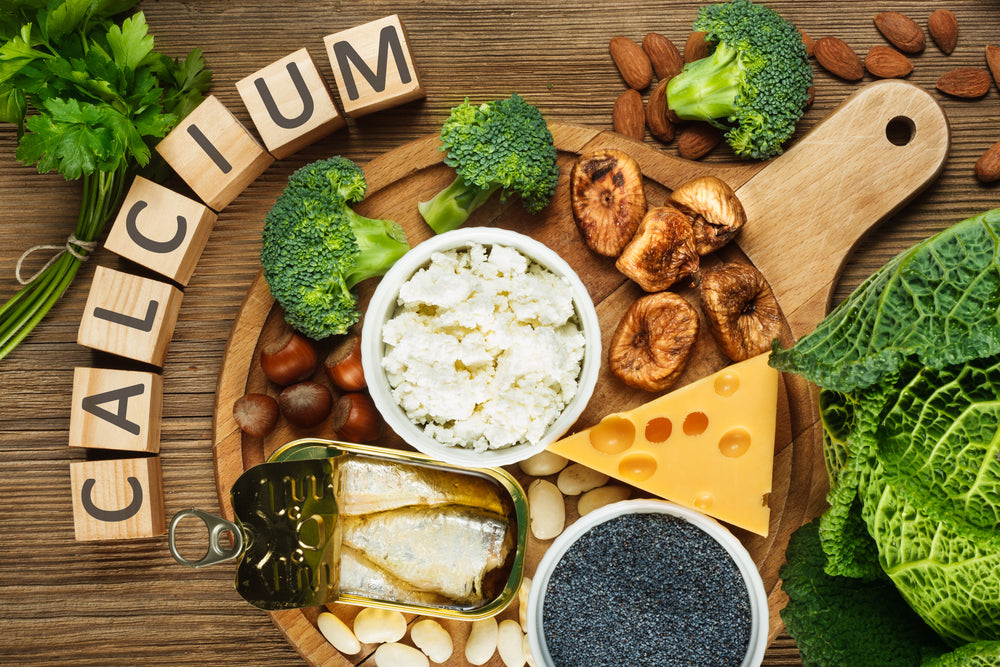In a nutshell!
Calcium is the most abundant mineral in the body and, as such, one of the most important. Many other nutrients, including vitamin D, and some hormones, are important for calcium’s regulation and absorption. It works with magnesium in its function in the blood, nerves, muscles and tissues.
What does it do?
Calcium has some really important life supporting functions, the most well-known being the growth and development of bones and teeth. Bones are primarily calcium phosphate, bound up with protein. The bones provide calcium to the blood which is regulated by vitamin D and parathyroid hormone and calcitonin. Calcium is
also vital for muscle contraction and regulating the heartbeat and blood pressure. It is also important in nerve transmission and the blood clotting mechanism. Read more
Daily Requirement
*EU NRV is 800 mg **Expert Group upper safe level is 1500 mg
Food Sources
The best source of calcium is milk and milk products being yoghurt, cheese and butter. However, green leafy vegetables including broccoli and cauliflower are also good sources but spinach and chard contain oxalic acid, so their calcium is not easily absorbed. Canned fish such as sardines are good sources when the soft, edible bones are eaten.
You need to know
The main issue with a high calcium intake is where there is a magnesium or vitamin D deficiency as this can lead to calcification of the soft tissue or the formation of kidney stones. Excess calcium can cause plaques in the arteries, but this can also occur where there are a lack of sufficient antioxidant nutrients in the diet, which protect the artery wall.
Pregnancy and breastfeeding
Calcium is suitable to take during pregnancy and breast feeding but should be combined with vitamin D for effective absorption.
Are you getting enough?
Calcium deficiency is fairly common in the elderly, pregnant women and people with gastrointestinal disease who have problems with mineral absorption. The skeletal system tends to suffer most from deficiency. The main deficiency disease is osteoporosis, but also brittle nails, irritability, insomnia, heart palpitations and muscle twitching are all signs of calcium deficiency.
Why do I need it?
Calcium is most frequently used by doctors in cases of osteoporosis. This is most commonly seen in menopausal and post menopausal women and is therefore frequently used to help stem the disease. Additionally, calcium is often prescribed to reduce heart irregularities, alongside magnesium. It can also be helpful for menstrual cramps.
Did you know?
It is known as the ‘red vitamin’ as it is a red crystalline compound and is very important for the blood. Unlike the other B vitamins, it can be stored in the body, hence deficiencies can often take many years to develop.
Also did you know?
Calcium absorption becomes less efficient as we age. This may be due to reduced stomach acid, which is needed for its absorption.
Try this
Calcium is found in the Alive! range of multi vitamins and minerals.

